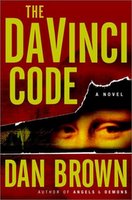
The best that can be said of Ron Howard’s film adaptation of Dan Brown’s “The DaVinci Code” is that the film maker has taken a theologically deficient, profane, anti-Christian fictional page turner and made of it a theologically deficient, profane, anti-Christian soporific film.
A movie that four decades ago might have been banned in Boston now has been panned in Cannes.
Hollywood Reporter Kirk Honeycut wrote, “For those who hate Dan Brown's best-selling symbology thriller 'The Da Vinci Code,' the eagerly awaited and much-hyped movie version beautifully exposes all its flaws and nightmares of logic.”
BBC News entertainment reporter Caroline Briggs wrote, “Scriptwriter Akiva Goldsman has produced a script that is clunky in parts and downright cringeworthy in others."
"Nothing works really,” wrote Stephen Schaefer of the The Boston Herald. “It's not suspenseful, it's not romantic, it's certainly not fun. It seems like you're in there forever and you are just conscious of how hard everybody is working to try to make sense of something that's perhaps unfilmable.”
The Canes critics do not think that the DaVinci Code – which, treading in the footsteps of 2nd century Gnostics, denies the divinity of Jesus – is blasphemous, not to say heretical; for it is only a fictional work, and neither St. Justin Martyr or Tertullian, both fathers of the early Christian Church who contended against the more preposterous of the gnostic heretics, were writing the reviews.
The critics merely thought the film was “plodding.”
If the critics had confronted the theological problems associated with Brown’s book, they would find themselves plodding through the writings of dozens of early church fathers, most of whose treatises are not filmable.
The fact that The DaVinci Code is fiction provides the increasingly reclusive Brown, who has managed to create a best seller from 2nd century gnostic after dinner party jokes, with a certain amount of critical cover. Every criticism of the book and film that touches on its blaring blasphemy invites the dismissive response: It’s only fiction. When critics of the book and film point out that a popular fictional work that denies the divinity of Jesus legitimately raises a red flag among faithful believers, they are told the book is “only fiction.” When Christian critics reply that “The Protocols of the Elders of Zion” also is fiction, they are met with silence.
A telling silence.
Comments